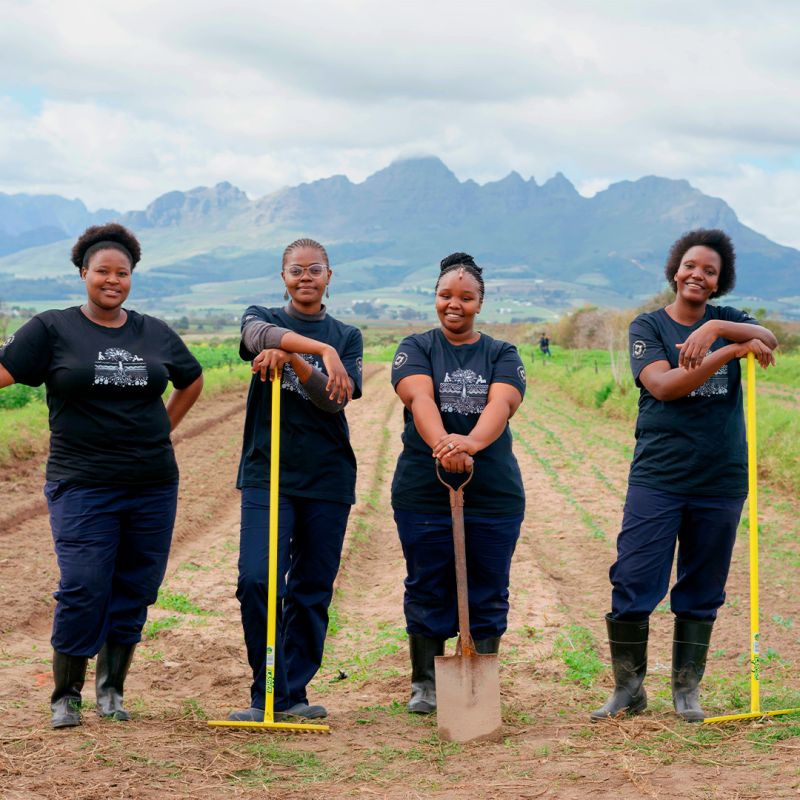BY Nkosazana Ngwadla
The Living Soils Community Learning Farm is a pilot project to grow nutrient-rich food, in partnership with Woolworths, Spier Wine Farm and the Sustainability Institute.
It was launched in March 2019 and involves training and development to empower emerging, young farmers with the skills to tackle food insecurity and to ensure local youth employment. Within eight months of launching, the first harvest of vegetables was seen and since then, approximately 6095 kilograms of produce – including carrots, broccoli, cauliflower, cabbage, lettuce, cucumber, baby marrow, tomatoes, butternut, gem squash, spring onion, green pepper, green beans and mielies – has been harvested from just under a hectare of land.
Since the first harvest, 45% of the produce has gone towards various beneficiaries; School Feeding Programmes at the Sustainability Institute, and Lynedoch Valley community households. The produce has also been sold as veggie boxes to local restaurants and wholesalers, and surplus produce has been donated to FoodForward SA.
“It was a wonderful moment when we delivered the first order to the Sustainability Institute, to use in the meals prepared for approximately 200 impoverished and at-risk children from the Lynedoch community, who attend various school programmes at the Institute. This is one of the main objectives of the Living Soils Community Learning Farm, to improve food security within the community, starting with Early Childhood Development (ECD) Centres,“ says Rirhandzu Marivate, Project Manager for the Living Soils Community Learning Farm.
Like unemployment, food insecurity remains persistent and widespread in South Africa, where contrasting forms of malnutrition, from wasting and stunted growth to unhealthy eating, co-exist with significant impacts on health and wellbeing. Through demonstrating the growing of nutritious food sustainably, the Living Soils Community Learning Farm aims to offer the country an innovative, collaborative model to improve food security while also boosting livelihoods and access to land.
Image: LinkedIn












